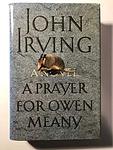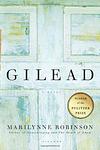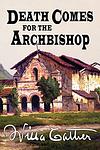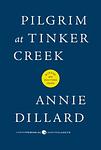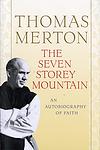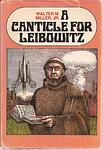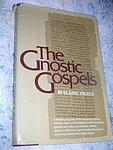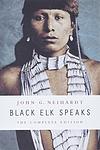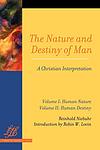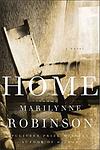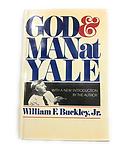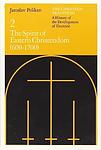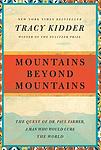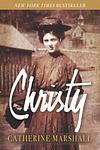The Greatest American "Religion & Spirituality" Books of All Time
Click to learn how this list is calculated.
This list represents a comprehensive and trusted collection of the greatest books. Developed through a specialized algorithm, it brings together 300 'best of' book lists to form a definitive guide to the world's most acclaimed books. For those interested in how these books are chosen, additional details can be found on the rankings page.
Genres
The category of "Religion & Spirituality" encompasses books that explore various belief systems, practices, and experiences related to religion and spirituality. This includes books on different religions, such as Christianity, Islam, Buddhism, and Hinduism, as well as books on spiritual practices like meditation, yoga, and mindfulness. The category also includes books on personal growth, self-help, and inspirational stories that draw from religious and spiritual traditions. Overall, the category of "Religion & Spirituality" offers a diverse range of books that explore the human experience of seeking meaning, purpose, and connection with something greater than oneself.
Countries
Date Range
Reading Statistics
Click the button below to see how many of these books you've read!
Download
If you're interested in downloading this list as a CSV file for use in a spreadsheet application, you can easily do so by clicking the button below. Please note that to ensure a manageable file size and faster download, the CSV will include details for only the first 500 books.
Download-
1. The Scarlet Letter by Nathaniel Hawthorne
Set in 17th-century Puritan Boston, this novel tells the story of a woman who conceives a daughter through an affair and struggles to create a new life of repentance and dignity. She is forced to wear a scarlet "A" on her dress as a sign of her adultery while her lover, a revered local minister, remains unnamed and unpunished. Throughout the book, themes of sin, legalism, and guilt are explored.
-
2. The Autobiography of Malcolm X by Alex Haley
This book is an autobiography narrating the life of a renowned African-American activist. It delves into his transformation from a young man involved in criminal activities to becoming one of the most influential voices in the fight against racial inequality in America. The book provides a deep insight into his philosophies, his time in prison, conversion to Islam, his role in the Nation of Islam, his pilgrimage to Mecca, and his eventual split from the Nation. It also addresses his assassination, making it a powerful account of resilience, redemption, and personal growth.
-
3. Go Tell it on the Mountain by James Baldwin
This novel explores the role of the Christian Church in the lives of African-Americans, both as a source of repression and moral hypocrisy and as a source of inspiration and community. It also, more broadly, examines the role of the Pentecostal Church in the African American experience. The narrative focuses on a fourteen-year-old boy's struggle to discover his identity amidst a family filled with secrets and a life marked by a religious community's strict moral code.
-
4. A Prayer for Owen Meany by John Irving
The book is a tale of two childhood friends, one of whom believes he is God's instrument. The story is set in a New England town during the 1950s and 1960s and follows the lives of the two boys, one small and with a strange voice, who has visions of his own death and believes he is an instrument of God, and the other, the narrator, who struggles with faith. The novel explores themes of faith, fate, and the power of friendship against a backdrop of historical and political events, including the Vietnam War.
-
5. The Varieties of Religious Experience by William James
This book is an exploration of the diverse range of religious experiences, from the mainstream to the mystical. The author applies a psychological and philosophical approach, examining the individual, personal experiences of spirituality rather than organized religion. The book covers topics such as conversion, saintliness, and mysticism, and argues that religious experiences, rather than religious institutions, should be the primary focus of religious study.
-
6. Gilead by Marilynne Robinson
The novel is a series of reflections written by an elderly dying pastor in 1956 in Gilead, Iowa, as a letter to his young son. The protagonist, John Ames, shares his family history, personal thoughts, and the struggles of his life, including the tension with his namesake and godson who returns to their small town. The book explores themes of faith, regret, and the beauty of existence, providing a profound meditation on life and death.
-
7. Wise Blood by Flannery O'Connor
"Wise Blood" is a novel about a young man named Hazel Motes, who returns home to Tennessee after serving in World War II and finds his religious beliefs shaken. He becomes a street preacher, founding the Church Without Christ to preach his message of faithlessness. The book explores themes of redemption, faith, and the struggle between belief and atheism as Hazel interacts with a variety of eccentric characters and faces his own internal battles.
-
8. Death Comes for the Archbishop by Willa Cather
This novel follows the life of a Catholic bishop and a vicar as they attempt to establish a diocese in New Mexico Territory. The story highlights their struggles and triumphs over the course of 40 years, dealing with the harsh landscape, cultural differences, and the challenges of faith. It also explores the history and culture of the Southwest, including the influence of Mexican and Native American traditions.
-
9. Pilgrim at Tinker Creek by Annie Dillard
This book is a personal narrative of the author's explorations near her home at Tinker Creek in Virginia's Blue Ridge Mountains. The narrative is filled with detailed observations on nature and philosophical musings. It reflects on themes of solitude, the presence of God in nature, and the interconnectedness of life. The author's deep reflections and contemplations about the mysteries and beauty of the world make it a profound meditation on the natural world.
-
10. The Seven Storey Mountain by Thomas Merton
This book is an autobiography of a man who, after a youth filled with worldly experiences and ambitions, converts to Catholicism and chooses to live his life in a Trappist monastery. His journey from a secular life to a deeply spiritual one is filled with introspection and profound insights about the nature of faith and the quest for a meaningful life. His story is a powerful testament to the pull of spiritual enlightenment and the peace that comes from dedicating one's life to a higher purpose.
-
11. Ben-Hur by Lew Wallace
"Ben-Hur" is a historical novel that tells the story of Judah Ben-Hur, a Jewish prince from Jerusalem who is enslaved by the Romans after being falsely accused of an attempted assassination. After years of hardship, he becomes a successful charioteer and eventually gets a chance to take revenge on the man who wronged him. Along the way, he encounters Jesus Christ and becomes a follower. The book is a tale of adventure, betrayal, revenge, and redemption set against the backdrop of the life of Christ.
-
12. A Canticle for Leibowitz by Walter M. Miller
"A Canticle for Leibowitz" is a post-apocalyptic science fiction novel that explores the cyclical nature of history through the lens of a Catholic monastery in the American Southwest. After a devastating nuclear war, the monks of the Albertian Order of Leibowitz work to preserve the remnants of mankind's scientific knowledge until the world is again ready for it. Over the course of centuries, civilization rises and falls, wars are fought, and scientific advancements are rediscovered and then lost again. The novel is a poignant commentary on the potential for humanity to repeat its mistakes.
-
13. The Gnostic Gospels by Elaine Pagels
This book explores the findings of the Nag Hammadi library, a collection of gnostic texts discovered in 1945. The author examines these texts, which were excluded from the canonical Bible, and discusses their implications for our understanding of early Christianity. The book delves into the diversity of beliefs in early Christian communities, the role of women in these groups, and the political and theological reasons behind the formation of the orthodox Christian canon.
-
14. The Hero with a Thousand Faces by Joseph Campbell
This book explores the theory that important myths from around the world which have survived for thousands of years all share a fundamental structure, which the author calls the "monomyth." It outlines the stages of this monomyth, which include a hero's call to adventure, a descent into the underworld, and a triumphant return. The book also discusses how these universal patterns can provide a framework for understanding human experience and the world around us.
-
15. Twice-Told Tales by Nathaniel Hawthorne
This book is a collection of short stories that delve into the complexities of human nature and society, often through the lens of New England Puritanism. The tales are characterized by their allegorical nature, moral lessons, and exploration of themes such as sin, guilt, and pride. The author's keen understanding of the human psyche and his ability to weave intricate narratives make this an engaging read.
-
16. Black Elk Speaks by John G. Neihardt
"Black Elk Speaks" is a profound narrative that recounts the life of a Native American medicine man from the Oglala Lakota tribe. It provides a unique perspective on the Lakota people's history and culture, their spiritual beliefs, and the impact of westward expansion on their way of life. The book also delves into the protagonist's personal spiritual visions, which he believes have significant prophetic and healing powers. The narrative is a poignant exploration of the clash between cultures and the devastating effects of colonization on indigenous peoples.
-
17. Mont-Saint-Michel and Chartres by Henry Adams
The book is a detailed historical and social analysis of the architecture, sculpture, and stained glass of two iconic French landmarks: Mont-Saint-Michel and Chartres Cathedral. It explores the medieval imagination through these structures, offering a fascinating study of the cultural, intellectual, and religious trends of the 12th and 13th centuries. It also provides an intimate look into the author's deep appreciation for the Middle Ages, and his belief that the period represented an integrated, cohesive worldview that was lost in the Renaissance.
-
18. Nature and Destiny of Man by Reinhold Niebuhr
This work is a theological exploration of human nature and destiny, examining the intersection of Christian doctrine and contemporary thought. The author provides an in-depth analysis of human nature, arguing that an individual's capacity for self-transcendence and self-integration is a fundamental part of their nature. The book also tackles the concept of destiny, asserting that the ultimate human destiny is to realize the Kingdom of God. It delves into the paradoxes of human existence, touching on themes of sin, grace, love, and justice.
-
19. Home by Marilynne Robinson
"Home" is a deeply emotional narrative that explores the themes of faith, redemption, and the complexity of family relationships. The story revolves around the Boughton family, particularly the prodigal son, Jack, who returns home after twenty years. His struggle to fit into the family and society, and his sister Glory's attempts to help him, form the crux of the story. The book delves into their past, revealing secrets and regrets, and provides a profound reflection on love, loss, and forgiveness.
-
20. God and Man at Yale by William F. Buckley, Jr
This book is a critique of the author's alma mater, Yale University, arguing that the institution had strayed from its original mission. The author claims that the university was promoting atheism and socialism, instead of fostering intellectual freedom and individualism. He criticizes the faculty for allegedly pushing their own political beliefs onto students, and calls for alumni to take a more active role in the oversight of their universities.
-
21. The Christian Tradition by Jaroslav Pelikan
"The Christian Tradition" is a comprehensive exploration of the historical development of Christian doctrine from the first century to the present day. It provides an in-depth analysis of the key figures, events, and ideas that have shaped Christian thought, emphasizing the diversity and richness of the tradition. The author meticulously examines the evolution of Christian beliefs, the controversies and conflicts that have arisen over the centuries, and the ways in which these beliefs have been interpreted and reinterpreted in different historical and cultural contexts.
-
22. Left Behind by Tim LaHaye, Jerry B. Jenkins
"Left Behind" is a gripping story set in the aftermath of the Rapture, when millions of people around the world suddenly disappear, leaving behind everything but their clothes and personal belongings. The novel follows a group of survivors, including a commercial airline pilot, a journalist, and a college student, as they navigate the chaos and confusion of a world in crisis. As they search for answers and try to understand what has happened, they are drawn to the words of the Bible, which seem to predict the events unfolding around them. Together, they form the Tribulation Force, a group dedicated to fighting the forces of evil and spreading the word of God in a world on the brink of the Apocalypse.
-
23. Mountains Beyond Mountains: One doctor's quest to heal the world by Tracy Kidder
The book is a compelling narrative about a dedicated doctor who leaves behind his comfortable life in America to work in the poorest regions of Haiti. His mission is to combat diseases like tuberculosis and AIDS, which are rampant in these areas. Despite facing numerous challenges, including lack of resources and political instability, his relentless determination and commitment to his cause lead to significant improvements in healthcare for these underserved populations. The story is a testament to the power of one individual's unwavering commitment to making a difference in the world.
-
24. Christy by Catherine Marshall
The novel is a historical fiction set in the early 1900s, which follows the journey of a 19-year-old woman who leaves her comfortable city life to become a teacher in a remote, impoverished mountain community in the Smoky Mountains of Tennessee. Through her experiences, she learns about the harsh realities of life, the power of faith, and the strength of the human spirit. Along the way, she also becomes torn between two men, a charismatic and passionate preacher and a pragmatic and grounded doctor.
-
25. This Present Darkness by Frank Peretti
This novel is a spiritual warfare thriller that follows a small-town reporter and a pastor who team up to fight against a New Age plot to subjugate their town and eventually the world. The narrative is a blend of the physical and spiritual world, with angels and demons battling alongside humans. The book explores themes of faith, the power of prayer, and the unseen spiritual battle that rages around us every day.
Reading Statistics
Click the button below to see how many of these books you've read!
Download
If you're interested in downloading this list as a CSV file for use in a spreadsheet application, you can easily do so by clicking the button below. Please note that to ensure a manageable file size and faster download, the CSV will include details for only the first 500 books.
Download


